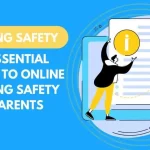What’s Happening?
The Cambridge Dictionary just added some very popular internet words that your kids are probably already using. Words like “skibidi,” “delulu,” and “tradwife” are now official dictionary entries. This means these aren’t just passing trends, they’re here to stay.
As a parent, you might feel lost when your child says something like “That’s so skibidi!” Don’t worry, you’re not alone. Let’s break down what these words mean and how you can understand your child’s digital language better.
The Three Big New Words
1. “Skibidi” – The Confusing One
What it means: This word doesn’t have one clear meaning. Kids use it to mean “cool,” “bad,” or sometimes nothing at all, just for fun.
Where it came from: A weird YouTube video series called “Skibidi Toilet” that shows heads sticking out of toilets. Yes, really.
How kids use it:
- “What the skibidi are you doing?” (instead of saying “what the heck”)
- “That’s so skibidi!” (meaning cool or awesome)
- Sometimes they just say it randomly to be funny
Parent tip: Don’t try to use this word yourself, your kids will probably cringe. Just know that when they say it, they’re usually being playful or trying to emphasize something.
2. “Delulu” – The Dream Word
What it means: Short for “delusional.” When someone believes things that aren’t real or likely to happen.
How kids use it:
- “I’m being delulu thinking I’ll pass without studying” (knowing they’re being unrealistic)
- “Delulu is the solulu” (being unrealistic is the solution – basically encouraging big dreams)
- About crushes: “I’m so delulu about him liking me back”
Different ways to use it:
- Self-aware: Kids often call themselves delulu when they know they’re being unrealistic
- About others: Pointing out when someone has unrealistic expectations
- Positive spin: Sometimes used to encourage big dreams and confidence
Parent concern: While the word can be harmless, watch out if your child is using it to dismiss real problems or avoid facing reality about important things like school or relationships.
3. “Tradwife” – The Lifestyle Word
What it means: Short for “traditional wife.” Refers to women who choose to focus on taking care of their home, husband, and children instead of having careers.
Where you’ll see it: Mostly on social media platforms like TikTok and Instagram, where some women share their traditional lifestyle choices.
How it’s used:
- “She’s going full tradwife after getting married”
- “The tradwife lifestyle isn’t for everyone”
- Sometimes used critically: “She’s just playing tradwife for social media”
Parent note: This word often sparks debates about women’s roles and choices. It’s worth having conversations with your teens about different lifestyle choices and respecting what works for different families.
Why Should Parents Care?
1. Stay Connected
When you understand your child’s language, you can better connect with them. Instead of feeling left out, you can join their world a little bit.
2. Spot Problems Early
Some of these words can signal concerning attitudes. If your child is constantly “delulu” about serious things or obsessed with extreme lifestyle content, it might be worth a conversation.
3. Bridge the Gap
These words show how much social media influences language. Understanding them helps you understand your child’s digital world better.
Simple Tips for Parents
Do:
- Ask your kids what new words mean when you hear them
- Stay curious about their interests, even if they seem silly
- Use these moments to start conversations about social media and its influence
Don’t:
- Try to use these words yourself (unless your kid teaches you)
- Panic about every new word your child learns
- Dismiss their language as “just nonsense”
Sample Conversations
When your child says: “I’m being so delulu about this” You can respond: “What do you mean by that? Are you worried about being unrealistic?”
When your child says: “That’s so skibidi” You can respond: “I don’t know that word, does it mean you like it or not?”
The Bottom Line
Language changes fast, especially online. Your kids are growing up in a digital world where new words spread in days, not years. These three words skibidi, delulu, and tradwife are just the beginning.
The most important thing isn’t learning every new word. It’s staying open to your child’s world and keeping the conversation going. When you show interest in their language, you show interest in them.
Remember: Every generation has had words that confused their parents. The difference now is how fast these words spread and change. Stay patient, stay curious, and don’t be afraid to ask your kids to be your teachers sometimes.
Key Takeaway
These new dictionary words aren’t just random internet slang anymore – they’re part of how young people communicate. By understanding them, you’re not just learning vocabulary – you’re learning how to better connect with your child in their digital world.



